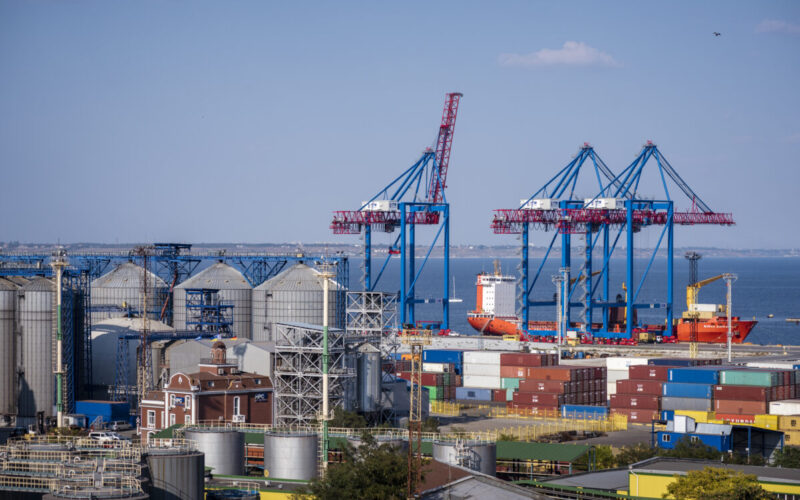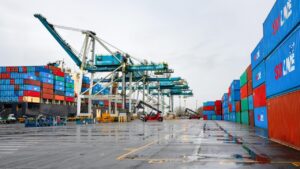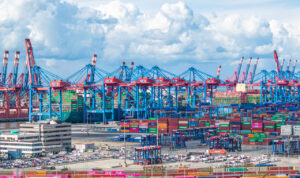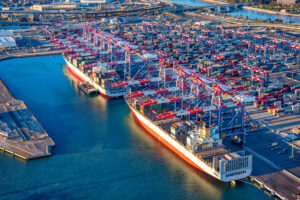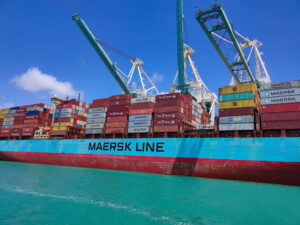Ukraine’s Farm Minister has reported that the new corridor enabling vessels to transport Ukrainian grain and iron ore from Black Sea ports has dramatically lowered freight rates and anticipates further decreases.
The temporary humanitarian corridor, launched by Kyiv in August, provided an alternative arrangement to export agricultural products to the UN-brokered Black Sea grain deal that had collapsed after Russia had backed out.
According to Reuters, Ukraine is projected to yield 79 million tonnes of grain and oilseed in 2023, and it is anticipated to have an exportable surplus of approximately 50 million tonnes for the 2023/24 period.
READ: Ukraine close to securing Black Sea transport
Minister of Agrarian Policy and Food of Ukraine, Mykola Solskyi, said: “New vessels are coming. Every farmer in the near future will be able to feel that logistics due to this route should become cheaper and, accordingly, the (profit margin) of grain will increase.”
In September, several cargo ships utilised the newly established route to transport grain and iron ore to the international market. On 1 October, three of the latest cargo ships left Ukrainian seaports to voyage across the corridor, as five new ships came in for loading.
“The first (ships) left. It was expensive. The next ones are cheaper. I think freight has become 30-40 per cent cheaper in the last two to three weeks. It is still expensive, but it is much cheaper than it was,” Solsky added.
READ: Two ships leave Ukraine carrying grain
Ukraine is among the world’s biggest supplying countries of grain. Following the onset of the country’s war with Russia, President Vladimir Putin closed off access to the Black Sea ports from Ukraine. Moscow held that the measure was in place to prevent Ukraine from transporting weapons, while Kyiv and its Western supporters brandished it an attempt to leverage global food supplies.
The ports reopened following a new deal known as the Black Sea grain deal brokered by the UN and Turkey that allowed Russian officials to inspect traversing ships for arms. Moscow later backed out of the deal having argued that their demands were being left ignored.
After the collapse of the deal, state-sanctioned attacks occurred, including Russian drone strikes on Ukraine’s main inland port and grain silo near the Danube River in the southern Odesa region in early August. These attacks caused substantial damage and led to a suspension of operations at the Port of Izmail.
Moscow also authorised warning strikes on cargo vessels, causing congestion in neighbouring Black Sea ports’ shipping lanes and significant backlogs in mid-August. These events resulted in increased global food prices.
In September, Ukraine expanded its export trade corridors through shipping grain via Croatian seaports. Ukraine and Croatia made a preliminary agreement for Ukraine to move grain through Croatian ports on the Danube and the Adriatic Sea, said Foreign Minister, Dmytro Kuleba, during her visit to Zagreb.
Insurance broker, Miller, also announced last month that the establishment of a new marine insurance facility specifically designed for insuring Ukrainian grain exports via the country’s recently opened sea corridor.

